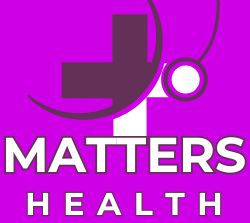If you’re looking for effective tips to conceive easily, you’ve come to the right place. Conceiving a child can be a complex process influenced by numerous factors, from understanding your body’s reproductive cycle to maintaining a healthy lifestyle. This blog post is designed to provide you with comprehensive insights and actionable advice to enhance your fertility and increase your chances of successful conception. By following these expert-backed tips, you can take proactive steps towards achieving your dream of becoming a parent.
Table of Contents
1. Understand Your Body and the Science Behind Pregnancy and Conception: Tips To Conceive Easily
Understanding the science behind pregnancy and conception is essential for anyone trying to conceive easily. Knowing how your body works can help you make informed decisions and increase your chances of successful conception.
The Conception Process

Conception is a complex process that begins with the release of an egg from the woman’s ovary, a phase called ovulation. This typically occurs around the middle of the menstrual cycle. The egg then travels down the fallopian tube, where it may meet sperm introduced during intercourse.
Fertilization occurs when a sperm cell successfully penetrates the egg. This fertilized egg, now called a zygote, continues its journey to the uterus, where it will implant into the uterine lining and begin to develop into an embryo.
Key Factors Affecting Fertility
Several factors can influence fertility in both men and women:
- Age: Fertility declines with age, particularly for women over 35.
- Health Conditions: Conditions like polycystic ovary syndrome (PCOS), endometriosis, and low sperm count can affect fertility.
- Lifestyle Choices: Diet, exercise, and habits like smoking and alcohol consumption can have a negative impact on fertility.
The Importance of Timing and Ovulation: Tips To Conceive Easily
To conceive easily, it’s crucial to understand your ovulation cycle. Ovulation typically occurs about 14 days before your next period. This is when you are most fertile, and timing intercourse around this period can significantly increase your chances of conception.
Methods to Track Ovulation:
- Basal Body Temperature: Tracking your temperature daily can indicate when ovulation has occurred, as there is a slight increase after ovulation.
- Ovulation Predictor Kits: These kits test your urine for the surge in luteinizing hormone (LH) that precedes ovulation.
- Cervical Mucus Method: Observing changes in cervical mucus can also help predict ovulation. Fertile mucus is typically clear and stretchy, similar to egg whites.
Understanding Your Menstrual Cycle
The menstrual cycle is divided into several phases:
- Menstrual Phase: The shedding of the uterine lining, marking the start of the cycle.
- Follicular Phase: The body prepares for ovulation, and follicles in the ovaries mature.
- Ovulation Phase: A mature egg is released from the ovary.
- Luteal Phase: The body prepares for a potential pregnancy. If the egg is not fertilized, the cycle ends with the menstrual phase.
By understanding these phases and how they relate to fertility, you can better plan and time intercourse to maximize your chances to conceive easily.
Male Fertility Factors: Tips to Conceive Easily
Male fertility is also crucial in the conception process. Factors affecting male fertility include:
- Sperm Quality and Quantity: Healthy sperm must be of good quality and sufficient quantity to reach and fertilize the egg.
- Lifestyle Factors: Like women, men’s lifestyle choices, including diet, exercise, and avoiding harmful substances, can impact fertility.
Conclusion
Understanding your body and the science behind pregnancy and conception is fundamental to increasing your chances to conceive easily. By knowing the key factors that affect fertility, the timing of ovulation, and the importance of a healthy lifestyle, you can take proactive steps towards achieving a successful pregnancy.
2. Preparing Your Body for Conception: Tips to conceive easily
Preparing your body for conception is crucial to increase your chances of becoming pregnant easily. By adopting healthy habits and making specific lifestyle changes, you can create an optimal environment for conception and support a healthy pregnancy.
Maintain a Healthy Weight
Achieving and maintaining a healthy weight is one of the most important tips to conceive naturally. Both underweight and overweight conditions can affect your menstrual cycle and ovulation. Aim for a balanced diet and regular exercise to reach and sustain a healthy body weight.
Follow a Balanced Diet

A nutritious diet plays a vital role in preparing your body for conception. Include a variety of fruits, vegetables, whole grains, lean proteins, and healthy fats in your meals. Essential nutrients that support fertility include:
- Folic Acid: Crucial for fetal development and reducing the risk of birth defects.
- Iron: Supports healthy ovulation and helps prevent anemia during pregnancy.
- Calcium: Important for bone health and the development of the baby’s skeleton.
- Omega-3 Fatty Acids: Promotes healthy hormone function and reduces inflammation.
Take Prenatal Vitamins
Prenatal vitamins ensure you get essential nutrients that might be missing from your diet. Key vitamins and minerals in prenatal supplements include folic acid, iron, calcium, and vitamin D. Start taking prenatal vitamins at least three months before trying to conceive.
Regular Exercise
Engaging in regular physical activity helps maintain a healthy weight, reduces stress, and improves overall well-being. Aim for at least 30 minutes of moderate exercise most days of the week. Activities like walking, swimming, and yoga are excellent choices for preparing your body for conception.
Avoid Harmful Substances: Tips To Conceive Easily
Avoiding harmful substances is critical when trying to conceive. Substances to avoid include:
- Alcohol: Can negatively affect fertility and fetal development.
- Tobacco: Smoking reduces fertility and increases the risk of miscarriage and birth defects.
- Recreational Drugs: Can impair fertility and harm fetal development.
- Caffeine: Limit intake to less than 200 mg per day (about one 12-ounce cup of coffee).
Manage Stress
High levels of stress can interfere with ovulation and decrease your chances of conceiving. Incorporate stress-reduction techniques into your daily routine, such as:
- Meditation: Helps calm the mind and reduce anxiety.
- Yoga: Combines physical exercise with relaxation techniques.
- Deep Breathing: Simple exercises to promote relaxation and reduce stress.
Monitor Your Menstrual Cycle
Understanding your menstrual cycle is key to identifying your fertile window. Track your cycle to determine the length and regularity, and use methods like basal body temperature and ovulation predictor kits to pinpoint ovulation.
Partner’s Health
Male fertility is equally important in the conception process. Encourage your partner to adopt healthy habits, including:
- Balanced Diet: Rich in fruits, vegetables, lean proteins, and whole grains.
- Regular Exercise: Maintains a healthy weight and improves sperm quality.
- Avoiding Harmful Substances: Alcohol, tobacco, and drugs can impair sperm quality.
- Managing Stress: Stress can affect hormone levels and sperm production.
Get Regular Check-Ups
Schedule a preconception check-up with your gynecologist to discuss your plans and address any health concerns. Regular check-ups can help identify and manage any medical conditions that might affect your ability to conceive easily.
Conclusion
Preparing your body for conception involves adopting a healthy lifestyle, maintaining a balanced diet, avoiding harmful substances, and managing stress. Regular check-ups and understanding your menstrual cycle can further increase your chances to conceive easily. By taking these steps, you create an optimal environment for conception and support a healthy pregnancy journey.
3. Preconception Counselling: Tips To Conceive Easily
Preconception counselling is a comprehensive evaluation of a couple’s health and lifestyle to identify and address any factors that could affect fertility and pregnancy. It involves a detailed discussion with your gynecologist, who will review your medical history, conduct necessary tests, and provide personalized advice to optimize your chances to conceive easily.
Preconception counselling is a vital step for couples planning to conceive easily. This process involves meeting with gynecologist to discuss your health, lifestyle, and any potential risks before trying to become pregnant. It helps ensure that both partners are physically and emotionally prepared for conception and pregnancy.
Why is Preconception Counselling Important?
Preconception counselling helps identify potential issues that could affect your ability to conceive and maintain a healthy pregnancy. It allows you to:
- Address any pre-existing health conditions
- Receive guidance on healthy lifestyle changes
- Understand your fertility and menstrual cycle
- Get advice on optimal timing for conception
- Learn about genetic risks and options for testing
What to Expect During Preconception Counselling: Tips To Conceive Easily
During preconception counselling, your healthcare provider will cover several key areas:
i. Medical History
Your provider will review your medical history, including:
- Chronic Conditions: Management of conditions like diabetes, hypertension, and thyroid disorders
- Previous Pregnancies: Information on past pregnancies, miscarriages, or complications
- Medications: Review of current medications and their safety during pregnancy
- Vaccinations: Ensuring vaccinations are up to date, including rubella and hepatitis
ii. Lifestyle and Habits
Your gynecologist will discuss your lifestyle choices and habits, such as:
Importance of a balanced diet and necessary supplements like folic acid, recommendations for regular physical activity, advising against use of substance like alcohol, tobacco, and recreational drugs, and limiting caffeine intake to less than 200 mg per day.
iii. Fertility Awareness
Understanding your menstrual cycle and identifying your fertile window are crucial for conception. Your gynecologist may discuss:
- Ovulation Tracking: Using basal body temperature, ovulation predictor kits, and cervical mucus observation
- Timing of Intercourse: Optimal days to try conceiving
iv. Genetic Screening
Genetic screening can identify potential genetic disorders that could be passed on to your child. Your healthcare provider may recommend:
- Carrier Screening: For genetic conditions like cystic fibrosis or sickle cell anemia
- Family History: Discussion of any hereditary conditions in your family
Benefits of Preconception Counselling
Preconception counselling provides several benefits, including:
- Improved Fertility Awareness: Better understanding of your menstrual cycle and fertile window
- Health Optimization: Addressing any medical issues and optimizing health for both partners
- Reduced Risks: Identifying and mitigating potential risks to conception and pregnancy
- Emotional Support: Providing reassurance and support for both partners
Steps to Take After Preconception Counselling: Tips To Conceive Easily
After your preconception counselling session, follow these steps to increase your chances to conceive easily:
- Implement Lifestyle Changes: Follow the advice given by your healthcare provider regarding diet, exercise, and avoiding harmful substances
- Take Prenatal Vitamins: Start taking prenatal vitamins with folic acid to support a healthy pregnancy
- Track Ovulation: Use methods discussed during counselling to monitor your ovulation cycle
- Schedule Follow-Up Visits: Regular check-ups to monitor your progress and address any concerns
Conclusion
Preconception counselling is a proactive step that helps you and your partner prepare for conception and a healthy pregnancy. By addressing medical history, lifestyle choices, and potential risks, preconception counselling provides the foundation for a successful journey to conceive easily. Follow the advice and recommendations of your healthcare provider to optimize your health and increase your chances of achieving pregnancy.
4. The Role of Prenatal Vitamins: Tips To Conceive Easily

Prenatal vitamins play a crucial role in preparing your body for conception and supporting a healthy pregnancy. These supplements provide essential nutrients that might be missing from your diet, ensuring both you and your baby have the best possible start.
Why Prenatal Vitamins are Important
Prenatal vitamins are specially formulated to meet the increased nutritional needs of women trying to conceive and during pregnancy. They contain higher amounts of certain nutrients compared to regular multivitamins, which are vital for fetal development and maternal health.
Key Nutrients in Prenatal Vitamins
Prenatal vitamins are packed with essential nutrients that support fertility and pregnancy. Here are some key vitamins and minerals included:
- Folic Acid: Is vital for preventing neural tube defects in the developing baby. It is recommended to start taking folic acid at least three months before conception.
- Iron: Supports the increased blood volume needed during pregnancy and helps prevent anemia.
- Calcium: Is essential for the development of the baby’s bones and teeth, and helps maintain the mother’s bone density.
- Vitamin D: Is important for bone health and immune function.
- Iodine: Supports the baby’s brain development and thyroid function.
- Omega-3 Fatty Acids (DHA): Promotes the development of the baby’s brain and eyes.
- Vitamin B6: Helps alleviate morning sickness and supports overall energy levels.
When to Start Taking Prenatal Vitamins
To optimize your chances to conceive easily and support a healthy pregnancy, start taking prenatal vitamins at least three months before you begin trying to conceive. This ensures your body has an adequate supply of essential nutrients from the very beginning of your pregnancy.
How Prenatal Vitamins Support Conception
Prenatal vitamins can enhance fertility and improve your chances to conceive easily by:
- Balancing Nutrient Levels: Ensuring you have sufficient levels of essential vitamins and minerals that support reproductive health.
- Improving Egg Quality: Nutrients like folic acid and antioxidants can improve the quality of your eggs.
- Supporting Hormonal Balance: Vitamins and minerals play a role in maintaining hormonal balance, which is crucial for regular ovulation.
Choosing the Right Prenatal Vitamin: Tips To Conceive Easily
Selecting the right prenatal vitamin is important. Here are some tips to help you choose:
- Consult Your Healthcare Provider: Your gynecologist can recommend a specific brand or formulation based on your individual needs.
- Check for Key Nutrients: Ensure the prenatal vitamin contains at least 400mcg of folic acid, 27 mg of iron, 1000 mg of calcium, and 600 IU of vitamin D.
- Look for Docosahexaenoic acid (DHA): Some prenatal vitamins include DHA, an important omega-3 fatty acid. If not, consider taking a separate DHA supplement.
Taking Prenatal Vitamins
Consistency is key when taking prenatal vitamins. Here are some tips for incorporating them into your routine:
- Take Them Daily: Follow the recommended dosage and take the vitamin at the same time each day to make it a habit.
- Pair with a Meal: Taking prenatal vitamins with food can help reduce any potential nausea and improve absorption.
- Stay Hydrated: Drink plenty of water to help your body absorb the vitamins more effectively.
Addressing Side Effects
Some women may experience side effects from prenatal vitamins, such as nausea or constipation. Here are some ways to manage them:
- Nausea: Try taking the vitamin with a meal or at bedtime.
- Constipation: Increase your fiber intake, drink plenty of water, and engage in regular physical activity.
Conclusion: Tips To Conceive Easily
Prenatal vitamins are a crucial part of preparing your body for conception and supporting a healthy pregnancy. By providing essential nutrients that promote fertility and fetal development, these vitamins can significantly increase your chances to conceive easily. Start taking prenatal vitamins at least three months before trying to conceive and choose a supplement that meets your nutritional needs. Consistent use of prenatal vitamins, along with a healthy lifestyle, will help ensure the best possible start for you and your baby.
5. Managing Stress to Conceive Easily: Tips To Conceive Easily
Stress can significantly impact your ability to conceive easily. High levels of stress can disrupt your menstrual cycle, affect hormone levels, and reduce fertility in both men and women. Understanding how stress affects fertility and adopting effective stress management techniques can improve your chances of conceiving.
How Stress Affects Fertility: Tips To Conceive Easily
Stress triggers the release of stress hormones like cortisol and adrenaline, which can interfere with the reproductive hormones necessary for ovulation and sperm production. Here’s how stress can impact fertility:
- Disrupted Menstrual Cycle: High stress levels can lead to irregular periods, making it difficult to predict ovulation.
- Reduced Sperm Quality: Stress can decrease sperm count and motility, affecting male fertility.
- Lower Libido: Stress can reduce sexual desire, decreasing the frequency of intercourse.
- Hormonal Imbalance: Stress hormones can disrupt the balance of reproductive hormones, affecting ovulation and sperm production.
Tips to Manage Stress and Increase Your Chances to Conceive Easily
Effectively managing stress is essential for improving your fertility. Here are some practical tips to help you reduce stress and enhance your chances of conceiving:
i. Practice Relaxation Techniques

Incorporating relaxation techniques into your daily routine can help lower stress levels:
- Deep Breathing: Practice deep breathing exercises to calm your mind and reduce anxiety.
- Meditation: Spend a few minutes each day meditating to promote relaxation and mental clarity.
- Progressive Muscle Relaxation: Tense and then slowly release different muscle groups to relieve physical tension.
ii. Engage in Regular Exercise
Regular physical activity is an excellent way to manage stress and improve overall well-being:
- Aerobic Exercise: Activities like walking, swimming, and cycling can boost mood and reduce stress.
- Yoga: Combines physical exercise with relaxation techniques to promote mental and physical health.
- Strength Training: Helps release endorphins, which are natural stress relievers.
iii. Maintain a Healthy Lifestyle
Adopting a healthy lifestyle can help manage stress and support fertility:
- Balanced Diet: Eat a variety of nutrient-rich foods to support your overall health and energy levels.
- Adequate Sleep: Aim for 7-9 hours of quality sleep each night to help your body recover and manage stress.
- Hydration: Drink plenty of water to stay hydrated and support bodily functions.
iv. Set Realistic Goals
Setting realistic and achievable goals can help reduce stress and prevent feelings of overwhelm:
- Break Tasks into Smaller Steps: Divide larger tasks into smaller, manageable steps to make them less daunting.
- Prioritize: Focus on the most important tasks and let go of less critical ones.
- Be Flexible: Allow yourself some flexibility and adjust your goals as needed.
v. Seek Support
Having a strong support system can help you cope with stress more effectively:
- Talk to Loved Ones: Share your feelings and concerns with friends and family who can offer emotional support.
- Join Support Groups: Connect with others who are also trying to conceive to share experiences and advice.
- Professional Counseling: Consider seeing a therapist or counselor if stress becomes overwhelming.
vi. Limit Exposure to Stressors
Identifying and reducing exposure to stressors can help you manage stress better:
- Identify Triggers: Recognize the sources of stress in your life and find ways to minimize or avoid them.
- Time Management: Plan your day and prioritize tasks to avoid feeling rushed or overwhelmed.
- Healthy Boundaries: Set boundaries to protect your time and energy from unnecessary stressors.
Conclusion: Tips To Conceive Easily
Managing stress is crucial for anyone trying to conceive easily. High levels of stress can interfere with fertility by disrupting hormonal balance and affecting reproductive health. By practicing relaxation techniques, engaging in regular exercise, maintaining a healthy lifestyle, setting realistic goals, seeking support, and limiting exposure to stressors, you can reduce stress and improve your chances of conceiving. Prioritizing stress management will not only enhance your fertility but also support your overall well-being during your journey to parenthood.
Final Thoughts and Conclusion: Tips To Conceive Easily
Embarking on the journey to conceive easily involves a multifaceted approach that encompasses understanding your body, timing intercourse, preparing your body for conception, seeking preconception counselling, taking prenatal vitamins, and managing stress. Each of these elements plays a crucial role in enhancing your fertility and increasing your chances of successful conception.
Key Takeaways
- Understanding Your Body: Familiarize yourself with the science behind conception, the importance of timing, and the impact of lifestyle choices on fertility.
- Timing Intercourse: Aim to have intercourse two to three days before and after ovulation to maximize your fertile window.
- Preparing Your Body: Maintain a healthy weight, follow a balanced diet, engage in regular exercise, and avoid harmful substances.
- Preconception Counselling: Seek professional advice to address any health concerns, optimize your health, and understand potential genetic risks.
- Prenatal Vitamins: Start taking prenatal vitamins at least three months before trying to conceive to ensure your body has the necessary nutrients.
- Managing Stress: Incorporate stress-reduction techniques into your daily routine to promote hormonal balance and improve fertility.
Therefore achieving your goal to conceive easily requires patience, dedication, and a holistic approach to your health and well-being. By implementing the tips and strategies outlined in this blog post, you can create an optimal environment for conception and increase your chances of a healthy pregnancy.
Remember, every individual’s journey to conception is unique, and it’s essential to stay positive and seek support when needed. Whether you’re just starting or have been trying for a while, these tips to conceive easily, will provide you with valuable guidance and support along the way.


